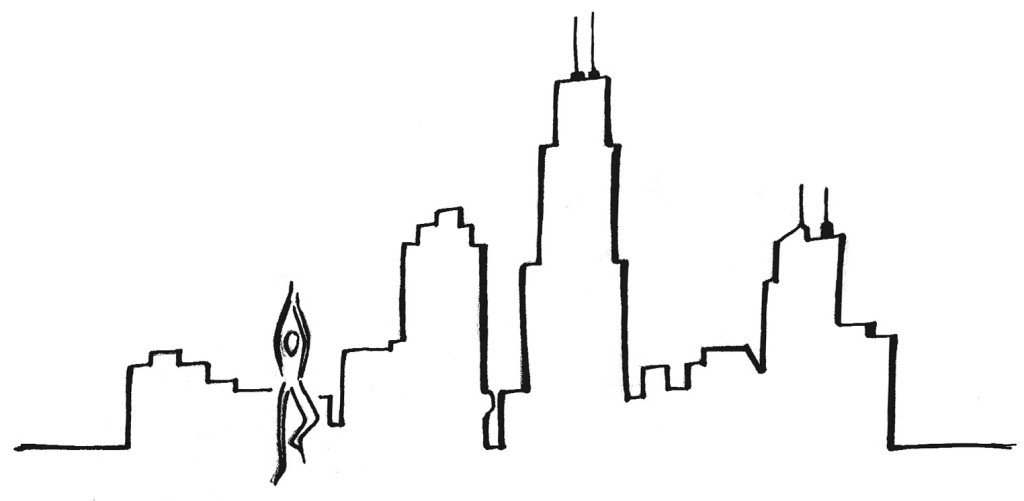 Guidance on how to “cultivate (the) opposite” (Patanjali, Yoga Sutra 2:33)
Guidance on how to “cultivate (the) opposite” (Patanjali, Yoga Sutra 2:33)
By Debi Buzil
What’s up with the guy in the red Mustang? He sped up, cut me off and then slowed down, brake lights flaring. Doesn’t he see my two kids in the backseat? My blood is beginning to boil. Dare I say, maybe some “language” will pass through my lips? But, wait! I have an option: yogic techniques to make my life more peaceful and efficient. My “yoga backpack” is filled with lessons learned through practice and study. I use discernment to know what to pull out when.
I take a deep breath and offer a moment of gratitude for all that is right. I send the driver some positive energy (a bit of a challenge, but I know the payoff). Then I offer him love (yes, love). Is he late for work? Could he be an adrenaline junkie? Is there an emergency? I don’t know and it doesn’t matter. His chaotic driving is not directed towards me. I drop the story line. I take another deep breath. The kids and I sing a song.
We feel better, having reached into my yoga backpack for Patanjali’s Yoga Sutra 2:33, “When having an uncomfortable thought or feeling, cultivate its opposite (pratipaksha bhavanam).”
This is radical yogi thinking. I am not a slave to my feelings or my negative thoughts. I can “flip” them, have a different experience and create a different outcome. The shift can be immediate. Yoga has taught me to not react impulsively and to respond appropriately to each situation. Choice versus habit. In a moment — a breath — see yourself more clearly and respond with love and compassion.
But how? Each time you have a negative thought, feeling or emotion, see it as an opportunity to practice. Accept where you are. Is your chest tight? Your breath shallow? Then you may have an “Aha!” moment, remembering you are in charge. Be in the moment. Breathe more deeply and inhale a positive quality. With your exhale, send this quality toward the person or situation at hand. Feel lighter and freer.
Pema Chödron, the Buddhist author and a disciple of Chogyam Trungpa Rinpoche, suggests dropping the story line. When we attach ourselves to past actions or future outcomes, our reality becomes distorted and we create anguish in our lives. Attachment promotes suffering. Mindfulness practices such as meditation and asana teach us to how to stay present and to let go of the story line.
I am an urban woman and carry a proverbial backpack filled with yoga philosophy and practices to help me navigate. It serves me well and allows me to send love to the man in the red Mustang. He’s speeding down the road, and I am tossing garlands of red roses after him.

























One Response to “Sutra In The City: Seeing red and cultivating the opposite”
October 9, 2013
Five links to make sure you check out while I rest my neck[…] Using yoga off the mat and in the car to see love instead of road rage. […]